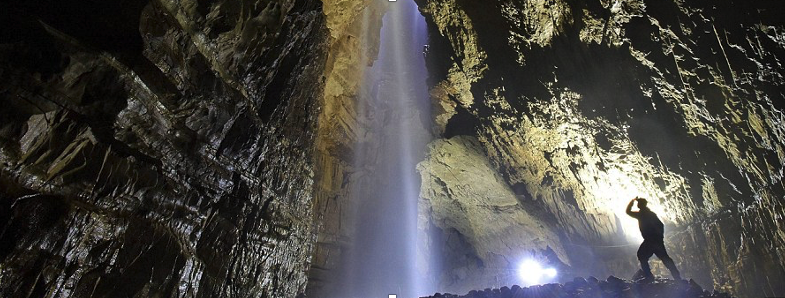By Emily Arvay

“The well of inspiration is a hole that leads downwards” (Atwood, 176).
Margaret Atwood and Hélène Cixous suggest that all writing is motivated by a compulsion to explore the deepest parts of ourselves. Both authors argue that writing serves to illuminate “an underworld” to draw unacknowledged or unexamined insights back into the light (Atwood, xxiv). Whereas Cixous compares writing to plunging deep into the earth or ocean (5), Atwood compares writing to entering a dark labyrinth or cave with no opening:
“Obstruction, obscurity, emptiness, disorientation, often combined with a struggle or path or journey – an inability to see one’s way forward but a feeling that there [is] a way forward, and that the act of going forward eventually [brings] about the conditions for vision.” (xxii-xxiii)
For Atwood, writing is midwifed in darkness through which inspiration appears as a flash of light (176). Simply put, writers who enter this underworld serve to illuminate that which is already present but unseen.
For Atwood and Cixous, the process of reading shares many of the same properties as writing: a reader enters a text from a place of darkness, unsure of where that text may take them, and temporarily loses then regains their sense of self in the process. As Cixous describes, to be a reader is “to lose a world and to discover that there is more than one world, and that the world isn’t what we think” (10). Ultimately, both authors acknowledge that writing-as-self-discovery is not an easy process – that any attempt to write with integrity is “an exercise that requires us to be stronger than ourselves” (Cixous, 42). It is perhaps for this reason that Kafka once compared writing to “an axe” to break “the frozen sea inside us” (as cited in Cixous, 17). Whether understood as a beam of light, a mirror, or an axe, Atwood, Cixous, and Kafka teach us that the process of writing, however imperfect, may gift the writer with the means to ascend towards a more luminous, expansive, or magnanimous awareness of self.
Works Referenced
Atwood, Margaret. Negotiating with the Dead: A Writer on Writing. New York: Cambridge University Press, 2002.
Cixous, Hélène. Three Steps on the Ladder of Writing. New York: Columbia University Press, 1993.
About the author:
Emily Arvay completed her PhD at the University of Victoria in 2019 with her thesis “Climate Change, the Ruined Island, and British Metamodernism.” Since then, she has worked as a Learning Strategist and EAL Specialist at the University of Victoria. She is currently conducting further research on the intersections between literary metamodernism and contemporary climate fictions.
